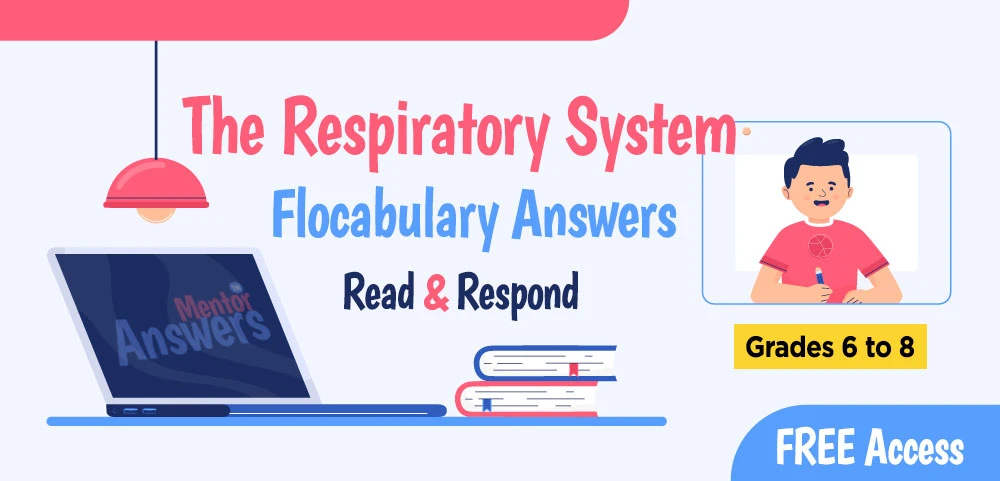Are you looking for a reliable source of answers for The Respiratory System Flocabulary Quiz, Read & Respond? You’ve come to the right place!
We have a team of teachers who have checked and verified the correct answers for all the questions. You can trust our expertise and save time by using our answers key.
The Respiratory System Flocabulary Quiz Answers Key
- turning nutrients into energy
- smelling a fragrant flower
- letting your body rest
- breathing in and out
- carbohydrates
- nutrients
- glucose
- oxygen
- lung.
- larynx.
- trachea.
- bronchiole.
- storing oxygen in the lungs
- exhaling from the lungs to the mouth and nose
- sweeping dirt and mucus out of the respiratory tract
- digesting nutrients from the air before they reach the stomach
- expands.
- contracts.
- disappears.
- stays the same.
- capillaries
- bronchi
- alveoli
- cilia
- oxygen
- alveolus
- bronchioles
- carbon dioxide
- cilia.
- lung.
- larynx.
- bronchus.
- The vocal cords rhythmically expand and contract.
- The diaphragm expands to take in more oxygen.
- Air from the lungs vibrates the vocal cords.
- The bronchioles send oxygen to the larynx.
- cry.
- sing.
- laugh.
- hiccup.
The Respiratory System Flocabulary Read & Respond Answers
Expand your knowledge by exploring the Read & Respond answers related to the topic of our Subject:
- Oxygen is the process by which respiration happens.
- Respiration and oxygen are both types of gases.
- Respiration is how the body takes in oxygen.
- Oxygen comes before respiration.
- As the lungs expand, the diaphragm expands.
- As the lungs expand, the diaphragm contracts.
- As the lungs contract, the diaphragm contracts.
- The lungs and diaphragm have no relationship.
- tree trunks that become smaller branches and twigs
- a tight flower bud that has opened into a full bloom
- whole apples that are sliced into separate wedges
- a bridge that crosses two rivers
- It expands.
- It disappears.
- It gets smaller.
- It stays the same.
- You are breathing harder than usual.
- The vocal cords are not vibrating normally.
- Air is inhaled too slowly to vibrate the vocal cords.
- Air is exiting your trachea and larynx in quick spurts.
Are you interested in delving into additional subjects and Lessons related to Flocabulary? Check Here To Get All Flocabulary Answers Key
If you have any questions or need more answers key for your favorite subject, please leave a comment below or contact us through our website. We would love to hear from you and assist you in your learning journey.

